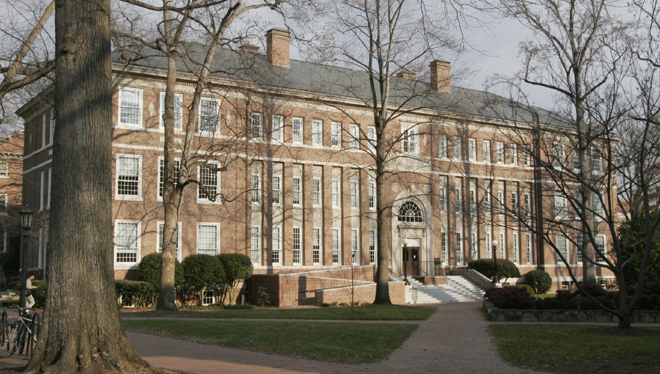How should colleges and universities deal with buildings named for historical figures that supported ideas or positions that today we find reprehensible? Should we continue to honor the legacy of slaveholders, KKK members, or pro-segregation leaders? This isn’t an academic argument as many universities, particularly in the South, have faced protests from students and other constituencies. However, nearly every major historical figures has aspects of their lives that we can take issue with today. How do we decide which ones stay and which need to go?

One of the hardest things that I have to help students think through in my history of higher education courses is how to consider moral issues and historical circumstances. For example, how do we consider the arguments of someone who advocated against women in higher education when we would all disagree with that position today?
The term for this is presentism. Simply put, it means applying contemporary ideas or understanding to the past.
The issue becomes especially acute when applying moral judgements. Many historians would argue that we shouldn’t pass judgement about the past with the lens of our modern beliefs. I tend to agree with this argument.
Others suggest that morals aren’t relative to time. That is, morality is timeless and if it is wrong today then it was wrong back then. While mores (what is considered taboo) may change, morality doesn’t. I also believe there is truth in this as well.
To think about this in context, let’s take a look at the case of UNC who has been considering how to deal with a building named for William Saunders.
Saunders fought for the Confederacy and served as North Carolina’s Secretary of State. He also served as a university trustee and compiled numerous colonial records that proved useful for historians. In 1922, a new building for the history department was built and named after Saunders to recognize his contributions to historical research.
However, Saunders was more than simply an amateur historian. Saunders served as a significant leader of the Ku Klux Klan in North Carolina.
When considering the honor of naming a building after Saunders, we must consider his legacy and contributions both positive and negative. Saunders did not just support the Confederacy or have racist attitudes. In fact, I’d probably argue that if that’s all he had negative then respecting the historical judgment of the university’s past leaders would warrant leaving his name on the building.
However, serving as a leader in the KKK that advocated terror and violence is more than just having views that we would disagree with today. His views and actions were to such an extreme that his name should be removed from the building immediately.
We must be cautious about making this kinds of decisions. First, we could find something distasteful in nearly every person. Second, we should give deference to the decisions of past leaders and not change a decision just because we wouldn’t have made the same decision.
Yet, we also must allow future generations to consider the best interests of institutions when deciding issues such as this. We must balance the challenge of presentism with relativism. Recognizing and honoring the past while considering the impact on our future.
In the case of Saunders, I believe his role in the KKK should lead to renaming of Saunders Hall. However, in another case with a different set of facts, the conclusion might be different.
We don’t want to whitewash the past nor do we want to continue honoring acts abhorrent to our moral beliefs.
This is a complex issue and requires well-meaning individuals to discuss, debate, and ultimately decide. I can’t think of a better place for such a conversation than a college campus.
Complexity isn’t a vice. We should embrace this hard parts of our past to establish our future direction.
No matter the outcome, the debate is in the best interests of higher education.
It honors our past and our future.

